What’s the best OKAP advice you’ve ever received? We asked members of the 2017 YO Info editorial board to share their tips on taking the Ophthalmic Knowledge Assessment Program exam. The 2017 exam takes place March 18.
Preparation
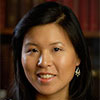 1. Plan for the format. Don’t forget to look through practice problems in order to familiarize yourself with the multiple-choice test format. A good place to start is the question bank at the back of each Basic and Clinical Science Course™ (BCSC©) book.
1. Plan for the format. Don’t forget to look through practice problems in order to familiarize yourself with the multiple-choice test format. A good place to start is the question bank at the back of each Basic and Clinical Science Course™ (BCSC©) book.
–Olivia L. Lee, MD
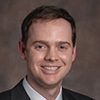 2. Read thematically. I always found studying for the OKAPs to be monotonous and of limited clinical utility. So I tried to pair the BCSC readings with a couple journals each month, reviewing the pertinent BCSC section for each article in the journal. As far as the books themselves, Section 4: Ophthalmic Pathology and Intraocular Tumors was the most valuable for my prep and the best one upon which to start and end my studying.
2. Read thematically. I always found studying for the OKAPs to be monotonous and of limited clinical utility. So I tried to pair the BCSC readings with a couple journals each month, reviewing the pertinent BCSC section for each article in the journal. As far as the books themselves, Section 4: Ophthalmic Pathology and Intraocular Tumors was the most valuable for my prep and the best one upon which to start and end my studying.
–D. Wilkin Parke III, MD
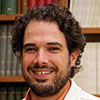 3. Leverage your test prep history. Do what has been successful for you in the past. Some people are memorizers, some do practice questions, some use outlines, etc. I rely a lot on having real-world context, which was lacking as a first-year resident — and my scores showed it. I found that reading the BCSC books each year and gaining more clinical experience made a world of difference for me between my first and third years of residency. Slow and steady will pay dividends in the end.
3. Leverage your test prep history. Do what has been successful for you in the past. Some people are memorizers, some do practice questions, some use outlines, etc. I rely a lot on having real-world context, which was lacking as a first-year resident — and my scores showed it. I found that reading the BCSC books each year and gaining more clinical experience made a world of difference for me between my first and third years of residency. Slow and steady will pay dividends in the end.
–Jason D. Rupp, MD
Mindset
4. Keep the long-term result in mind. As you might expect, the OKAPs often test information that is esoteric and not always clinically useful. Tailor your OKAP studying accordingly.
–Olivia L. Lee, MD
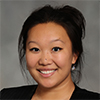 5. Have the right perspective. Don’t get discouraged! Most of us are extreme type-A personalities and are surrounded by equally driven peers. So it’s easy to torture ourselves endlessly if OKAP results don’t come back as we hoped. Remember that it is mainly an assessment tool to help you understand your relative strengths and weaknesses. Use the exam to your advantage rather than the detriment of your confidence.
5. Have the right perspective. Don’t get discouraged! Most of us are extreme type-A personalities and are surrounded by equally driven peers. So it’s easy to torture ourselves endlessly if OKAP results don’t come back as we hoped. Remember that it is mainly an assessment tool to help you understand your relative strengths and weaknesses. Use the exam to your advantage rather than the detriment of your confidence.
–Jiaxi Ding, MD
Reading Schedule
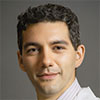 6. Allow time to re-read. Make a plan that includes going over material more than once in order to reinforce your reading. Remember that the tortoise beats the hare — take a bit of time every day when you can read, go over questions and review material. If you can adopt a slow-and-steady approach, it will serve you well.
6. Allow time to re-read. Make a plan that includes going over material more than once in order to reinforce your reading. Remember that the tortoise beats the hare — take a bit of time every day when you can read, go over questions and review material. If you can adopt a slow-and-steady approach, it will serve you well.
–James G. Chelnis, MD
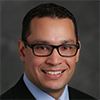 7. Study in phases. OKAP prep is one of the most daunting tasks in residency. Divide it into two phases. In the first phase, build a good foundation of knowledge. I found the foundation to all other forms of studying is regular BCSC reading. The second phase is just a few weeks long and should be dedicated to as many preparatory questions as time allows.
7. Study in phases. OKAP prep is one of the most daunting tasks in residency. Divide it into two phases. In the first phase, build a good foundation of knowledge. I found the foundation to all other forms of studying is regular BCSC reading. The second phase is just a few weeks long and should be dedicated to as many preparatory questions as time allows.
–Nathaniel Roybal, MD
 8. Repeat, repeat, repeat. Repetition is the key to adult learning, so be sure to plan enough time. Read the BCSC material for at least 30 minutes Monday through Friday, and review and review your week’s reading/notes Saturday and Sunday. Also, make flashcards and learn them. My favorite app was MentalCase--you can sync cards on phone, tablet, and computer.
8. Repeat, repeat, repeat. Repetition is the key to adult learning, so be sure to plan enough time. Read the BCSC material for at least 30 minutes Monday through Friday, and review and review your week’s reading/notes Saturday and Sunday. Also, make flashcards and learn them. My favorite app was MentalCase--you can sync cards on phone, tablet, and computer.
–Evan Silverstein, MD
9. Use these Academy resources.
About the authors:
Olivia L. Lee, MD, is a cornea and uveitis specialist at UCLA. She is also the associate medical director of the Doheny Image Reading Center and the cornea fellowship director at Doheny Eye Center.
D. Wilkin Parke III, MD, is a retina specialist at VitreoRetinal Surgery, PA, in Minneapolis. He completed his residency and fellowship at Bascom Palmer Eye Institute and co-directs the VRS retina fellowship.
Jason D. Rupp, MD, is a glaucoma fellow at Washington University in St. Louis, where he also trains in complex anterior segment surgery. He joined the YO Info editorial board in 2016.
Jiaxi Ding, MD, is a glaucoma specialist at Carolina Eye Associates, a large multispeciality ophthalmology group in North Carolina. She completed her glaucoma fellowship at the University of Iowa and residency training at SUNY Buffalo.
James G. Chelnis, MD, is the chair of the YO Info editorial board. He is an oculoplastic and reconstructive specialist at the New York Eye and Ear Infirmary of Mount Sinai in New York City. He completed his ASOPRS training at Vanderbilt University and the University of Tennessee.
Nathaniel Roybal, MD, splits his time between an assistant professorship at the University of New Mexico and a large multispecialty practice, Eye Associates of New Mexico, in Albuquerque. He completed his residency at UCLA and vitreoretinal fellowship at the University of Iowa.
Evan Silverstein, MD, is an assistant professor of ophthalmology and associate residency program director at Virginia Commonwealth University in Richmond, Va. He completed his residency at Vanderbilt University and a pediatric and adult strabismus fellowship at Duke University.